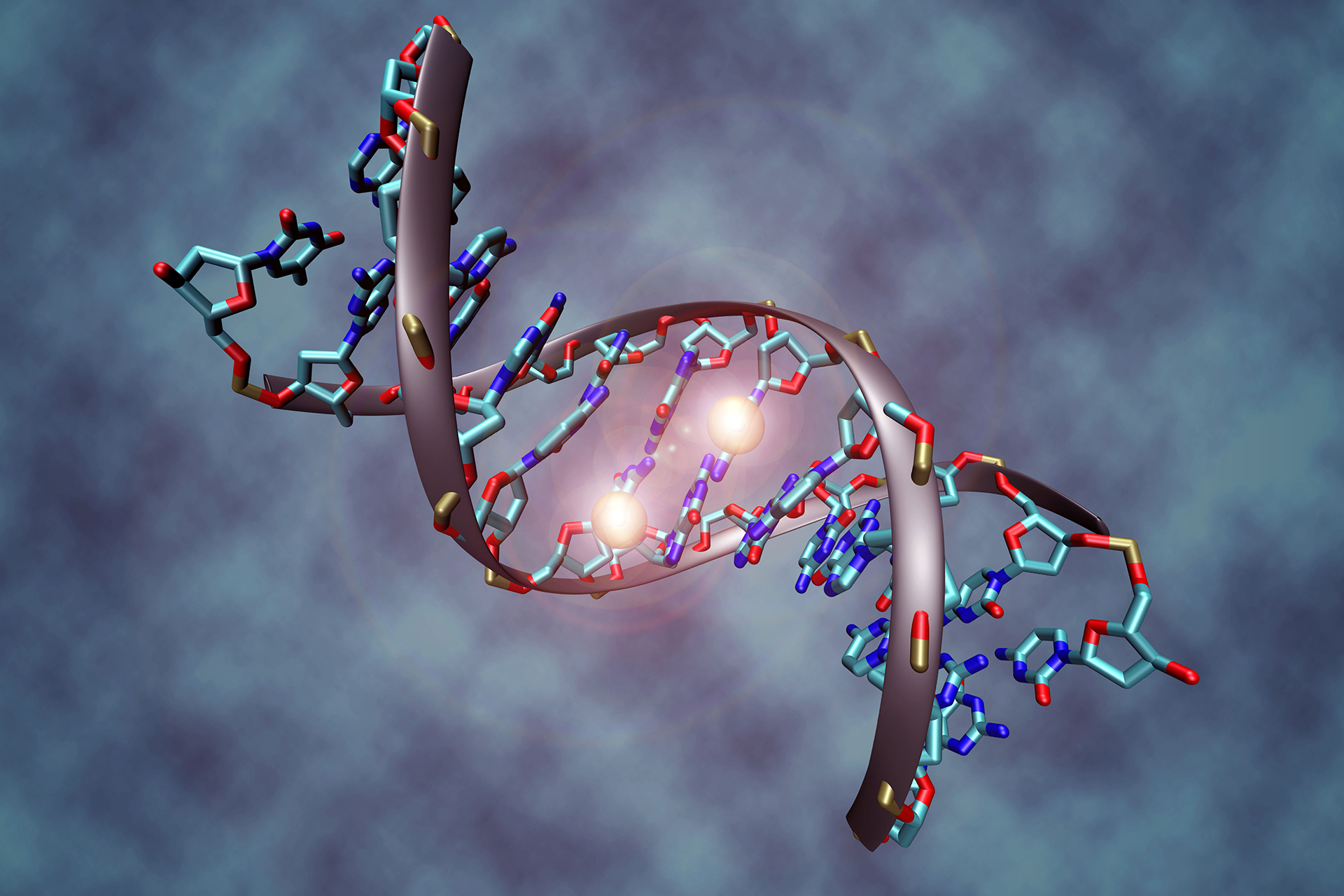|
The Secrets Inside Your Cells: Epigenetics, Trauma and Ancestry ABC Radio National, Saturday 22 April 2017 Presented by Natasha Mitchell |
The Human Genome Project, completed in April 2003, greatly improved our ability to study human health and disease. It also provided a deeper insight into our history and evolution as a species. Yet a recent episode of the 'Science Friction' radio show, presented by Natasha Mitchell on Australia’s ABC Radio, delved further into these fascinating topics through the lens of the new and emerging field of epigenetics.
Epigenetics is the process by which gene expression can be switched on and off, without changing the actual underlying DNA sequence. Several factors can influence a person’s epigenetics, including age, disease, environment and lifestyle. Natasha starts the show with a personal recollection of her grandfather's experiences as a prisoner during World War II and the effects it had on his life afterwards. He left his family, and died relatively young. She ponders whether her ancestor’s life experiences could have been transmitted to her biologically – through inheritance of her grandfather's epigenetics.
War takes an obvious toll on its victims but the presenter believes that 'war has a long tail' and that 'you can see tracks of war and its impact on three generations'. In this show, she is particularly interested in the idea that second- and third-generation Holocaust survivors might carry some biological memory of their ancestor's experiences.
War and epigenetics are a difficult combination to tackle. Epigenetics is scientifically complex and controversial, and war is emotive. Yet the show is balanced, engagingly presented and a pleasure to listen to. At times, I found the sound effects a little overdramatic but I appreciate this is a personal taste and they did help to make the show less dry. What was most impressive, however, was the strength of the science presented. While many such shows are based on weak science, two prestigious and robust scientific studies formed the core of this programme.
Natasha speaks to Professor Rachel Yehuda, director of the Traumatic Stress Division at Icahn School of Medicine at Mount Sinai, USA. Professor Yehuda studies how traumatic experiences can affect our biology and looks for epigenetic changes in war veterans and survivors, as well as their offspring. She explains that while studying descendants of Holocaust survivors, they found that many descendants thought 'they were true casualties of the Holocaust just like their parents and needed treatment'. When her team investigated the epigenomes of Holocaust survivors and first generation descendants, they showed that there were indeed changes in DNA methylation, a type of epigenetic mark, in a gene associated with the regulation of stress hormones.
Natasha then goes on to interview Kerry Ressler, professor of psychiatry at Harvard Medical School. Using mice as a model system, they trained males to be afraid of the scent of cherry blossom. Interestingly, they showed that the next generation of mice bred from these males had an enhanced startle response to the scent of cherry blossoms, even though they had never been exposed to the scent before. Professor Ressler explains they identified differences at the epigenetic level in this generation of mice, in the gene that encodes for the scent receptor. The methylation chemical signatures were different compared to mice whose fathers had not been trained to fear the scent of cherry blossom.
Studies by Professor Yehuda and Professor Ressler support the idea that stress and trauma can act as an environmental stimulus and cause heritable epigenetic changes. It is fascinating albeit disturbing to think that my own grandmother's experience of World War II and the Holocaust, from the starvation in the Munkács Ghetto to the unspeakable horrors of Auschwitz, could have such far-reaching effects to change my epigenome.
The important question is what, if any, practical day-to-day effect this has on an individual? Yet I found show set out to explore the broader idea of inheriting biological changes based on ancestor experiences, rather than the consequences of epigenetic changes.
Throughout the show, Natasha interweaves the discussion of trauma and epigenetics with the poignant story of Olga Horak, a 90-year-old Holocaust survivor, and her grandson Anthony Levin. The vivid memories of Olga and Anthony's experience growing up in such a family bring a sense of realism and perspective to a subject that is often hard to relate to. Anthony tells over how as a child he would lie in bed fearing that in the middle of night men would come to murder him in his sleep. He believes it was living in a home infused with stories of the Holocaust that caused such abnormal behaviour.
It is however essential to differentiate between human behaviour due to epigenetics and human behaviour due to an environment. Personally I think the effect of epigenetic changes are likely to be quite limited and somewhat insignificant, especially when compared to being raised in the home of a Holocaust survivor. As Professor Yehuda puts it: 'Of course if you are raised by someone who believes that at any moment the world can change and you can be hunted like prey, how is that not going to affect your parenting!'
But one thing the show makes clear is that the effects of war, conflict, and trauma can be surprisingly far-reaching. 'The secrets inside your cells: epigenetics, trauma and ancestry' was good listening and the show was informative and thought-provoking. I would highly recommend it.





Leave a Reply
You must be logged in to post a comment.